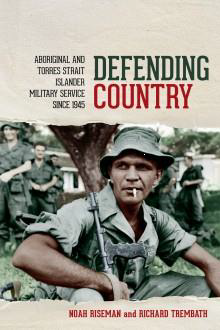On looking at the cover, one could well expect to read accounts of indigenous Australian’s military exploits since World War Two. Rather, it is a social examination of why these people become part of Australia’s military forces, their treatment in the forces, their expectations and what society dealt them on leaving the military; and the changing political environments they found themselves in during the last six decades.
The level of indigenous service during the Boer War and the First and Second World Wars is briefly, but adequately covered. Approximately 1000 served in World War I – for adventure, better wages, acquiring new skills and hopes for equal rights during and after the war. Many experienced great mateship in the services but were discriminated against on return in relation to pensions, participating in some Anzac Day Marches and being barred from hotels and initially the RSL.
With the advent of the Korean War, National Service (twice) and the Malayan Emergency, legislation was laboriously altered to allow indigenous Australians to become members of the armed forces. It has taken four decades for the definition of an indigenous person to be finally agreed upon. In the 1950s Eddie Mabo, being a Torres Strait Islander did not do National Service after his local MP established that Indigenous Australians were exempt. Many were not aware of this provision in both the 50s and 60s and underwent training anyway.
A very readable and enlightening chapter is devoted to Indigenous women in the services. Young girls were still being taken away from their families after 1945, and their future appeared to be restricted to a life spent in domestic service. Enlisting in the military was a way out, and as most were used to hostel life, they easily adapted to barrack life in their recruit courses. Four case studies from the Navy (WRANS), Army (WRAAC), Air Force (WRAAF) and Nursing Corps (RAANC) are included.
The latter part of Defending Country is devoted to the interest and recognition that our society is now paying to the part played by Aboriginal and Torres Strait Islanders in serving Australia and their contribution to our history. The major indicator that the ‘wheel has turned’ is the Australian Defence Force (ADF) promoting Reconciliation. The ADF’s Indigenous Pre-Recruitment Course (six months part time) to the units serving in the Top End (Norforce) to improve fitness, literacy and numeracy to a level that satisfies entry level. Indigenous culture has also been embedded in the Top End formation’s training of all its troops.
The text is well written and includes a collection of high quality photographs, exceedingly comprehensive notes, a bibliography and index.
Reviewed for RUSI by Neville Taylor, June 2016

Paperback RRP: $34.95
Contact Royal United Services Institute about this article.






